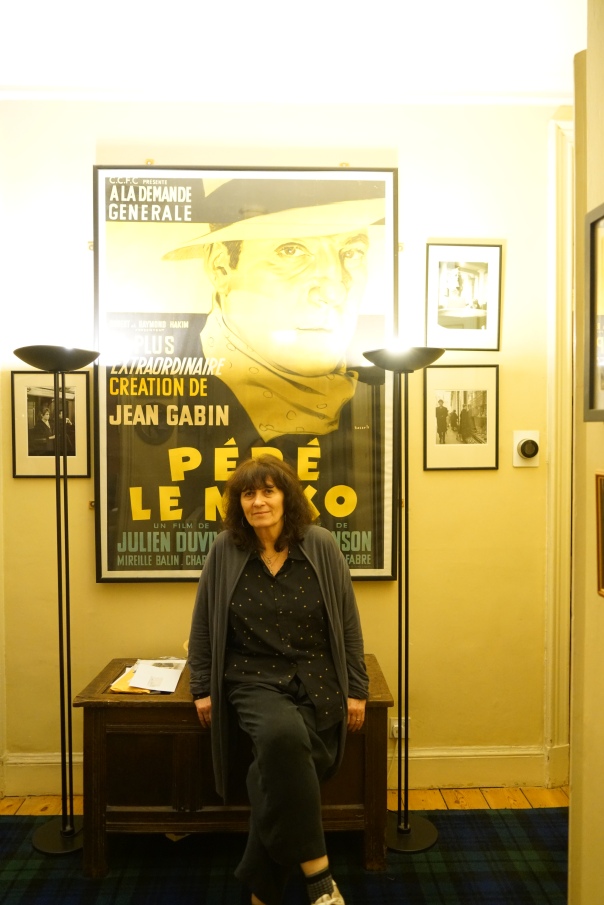
The first of two podcasts with the great Ginette Vincendeau on the great Jean Gabin. I´ve always been a fan of Gabin´s but my interest in him was revived by the ‘Jean Gabin: The Man With Blue Eyes’ retrospective curated by Edouard Waintrop at the 2919 Il Cinema Ritrovatto in Bologna, where aside from more familiar classics like Pépé le Moko (Julien Duvivier) and Le plaisir (Max Ophüls, 1951), I also had the opportunity to see Coeur de Lilas (Anatole Litvak, 1931), De haut en bas (George W. Pabst), Au-delà des grilles (René Clément, 1948), La Marie du port (Marcel Carné, 1949), and others.
I wanted to talk about all of this and find out more about Gabin. And who knows more about Gabin than Ginette Vincendeau? Ginette is Professor in Film Studies at King´s College London. As you can see from some of her various books above, she´s written on French Cinema of the 1930s, on Gabin specifically, on Gabin films in particular (Pépé le Moko), on directors Gabin worked with (Renoir) stars and stardom in French Cinema, texts in context in French cinema, etc. No one of my acquaintance knows more about Gabin and few are as much fun to talk to.
This above, the first of two podcast, covers the period up to 1954, where after a fallow post-war period Gabin once again re-emerged as a top box-office attraction. Who was Jean Gabin? How did he become a star? What did he represent in the 1930s and how is that significant in terms of class and national identity? How central is he to 1930s French Cinema. Was he allied to the Popular Front? There´s a narrative of failure around Gabin´s post-war career. Does that narrative hold up to scrutiny? These questions and others are discussed in this first podcast. The second will deal with the period from 1954 to his death in 1976.

Some of my blogging and podcasting on Gabin films of this period, mostly arising from he viewing in Ritrovato, can be found by clicking the hyperlinks above and below:
La Bandera (Julien Duvivier, 1935)
Le jour se lève (Marcel Carné, 1935)
Martin Roumagnac (Georges Lacombe, 1946)
Podcast from Ritrovatto that touches on Gabin

José Arroyo








